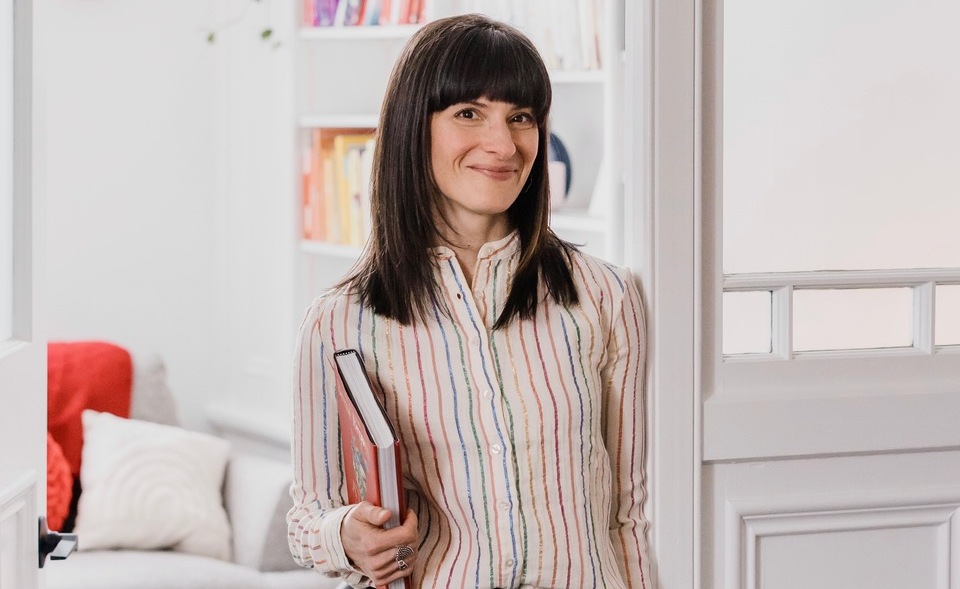- 2024-12-11
- Blog
Opening up to joy during the holiday season

During the winter holidays, we’re surrounded by messages reminding us to feel joy, connection and happiness. Many of us eagerly look forward to these positive emotions or even expect ourselves to feel them. As a psychotherapist who works extensively with survivors of trauma — and as a survivor of trauma myself — I understand how challenging this season can be. Often there’s a disconnect between how we think we should feel and what we actually experience. Let’s explore why that is and discover ways to open ourselves up to genuine moments of joy during the holidays.
Why joy feels elusive
Many of us may not realize that our emotions register first as physical sensations, before our brains assign meaning to them milliseconds later. Here’s an example:
Sally, a Canadian Armed Forces (CAF) Veteran who faces ongoing challenges with an occupational stress injury (OSI), looks forward every year to gathering with Family for Christmas dinner. Yet when she arrives at the door, she notices her heart rate increasing. Instead of recognizing this as excitement, her brain interprets the heightened sensations as a sign of possible danger, triggering anxiety and dread. This misinterpretation leads Sally to feel anxious instead of being able to feel the joy of the moment.
Sally’s brain is highly sensitized to perceiving things as threatening. For those exposed to trauma, physical sensations such as an increased heart rate — even when it’s tied to something we are excited about — can be misinterpreted by the brain as intense or even overwhelming. This can turn what might otherwise be a joyful experience into something that feels too intense or even scary.
Joy can also be difficult to feel if you are struggling to manage various trauma triggers or potentially harmful coping habits during the holiday season. Particular Family members, places and even scents can elicit difficult emotional responses that can dampen our spirits.
Vulnerability in joy
Joy is a fascinating emotion. Researcher Brené Brown describes it as our most vulnerable emotion. Often when we feel joy, it can seem too good to be true, which might cause us to anticipate hardship to protect ourselves from disappointment. This “foreboding joy” can keep us from fully embracing joyful moments, leaving us unable to truly savour them.
It is my belief that because first responders and soldiers are taught skills such as courage under fire and valour, vulnerable feelings such as joy can sometimes become more and more difficult to experience over time, particularly for those who have experienced work-related hardship or trauma. Sometimes the type of resiliency and mental fortitude required in these professions needs to be unlearned in the contexts where they don’t serve you.
Practising embodied awareness of joy using glimmers
I want to remind you that not only do you deserve to experience joy if you’d like to during the holidays, but that it is possible even if it has been hard in the past.
To genuinely experience joy, we can practise savouring tiny, fleeting instances of happiness — known in trauma therapy circles as glimmers — that help us really feel moments of joy while remaining grounded and present. We can do this by being mindfully present and aware of our body and sensations. Here are some ways to practise bringing embodied awareness to joyful experiences, making it easier to embrace joy during the holiday season:
- Noticing glimmers of warmth and comfort: Pay attention to the warmth of a cozy blanket, the soft glow of holiday lights or the sweetness of a holiday treat. Allow yourself to stay in these moments without rushing through them.
- Anchoring with glimmers of gratitude: Cultivate natural moments of gratitude for simple pleasures, like the sound of a loved one’s laughter or the charm of an imperfect but cute snowman. Notice how this feels physically in your body. You might notice some warmth or feel your chest expanding. Small acts of appreciation such as these helps us root more deeply into simple, joyful moments that feel steady and lasting.
- Grounding into spiritual or interpersonal glimmers: Joy naturally emerges in meaningful ways when we notice small but special moments with others. A quick chat with a loved one, a quiet moment of reflection on what matters most or a warm smile shared with a stranger — when we are mindful about these, they can be glimmers of connection that bring joy. Philosopher Iris Murdoch refers to this as “unselfing,” where small acts — offering a helping hand, sharing in a holiday tradition or giving back in a simple way — allow us to feel part of something greater. These small but powerful moments of spiritual or interpersonal connection can anchor us in joy, creating lasting meaning.
By opening ourselves to small, embodied moments and sharing in the spirit of connection, we can tap into joy — even during a season that might otherwise feel challenging. I hope that this helps you to embrace meaningful glimmers of joy this holiday season!
— Adrienne Carfagnini, MSW, RSW
Sex, relationship and trauma therapist

Are you a Veteran or Family member with a story to tell? Get in touch with us and you may be featured on this blog!

